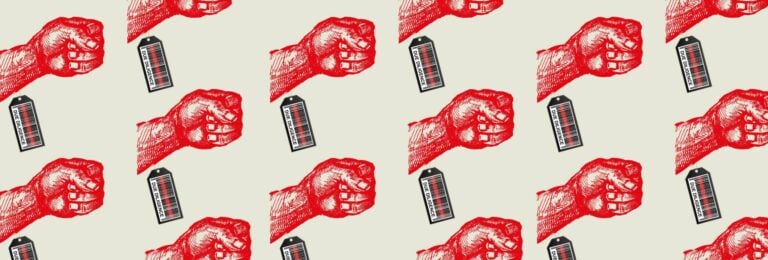‘We investigate companies thoroughly’
Working conditions must be in order, says H&M. In India and Sri Lanka, six people are keeping an eye on 40 factories.
Today, inspectors of H&M in New Delhi are at the table with the Board of Directors of the Indian textile factory KPR Mill, alias Quantum Knits, where last week De Volkskrant drew attention to exploitation of textile workers. "We first want to confront the Board of Directors with our findings, before we decide we want to do with this company in the future," says Linda Johannson (32), head of the Indian inspection team of H&M. Her team of six investigate the working conditions in the approximately 40 clothing factories in India and Sri Lanka with which H&M works. Last year they carried out 251 visits, more than half of which were unannounced.
Development organisations are calling for independent monitoring. Why does H&M work with its own inspectors?
"We can look further ahead. An agency which is paid to carry out inspections only looks at the situation at the moment itself. We maintain contact with a manufacturer for many years, and can therefore actually improve the work situation."
What is your working method when H&M wants to work with a new factory?
"We investigate such a company thoroughly. The factory must be approved before a trial order is placed. Ten years ago, we paid a great deal of attention to details such as the locations of fire extinguishers. Now we focus more on working conditions, such as the salary, working hours and access to trade unions."
How do you ensure that workers are not afraid to identify problems?
"We talk to them in a separate room and make sure that members of staff are not listening in. Sometimes it takes some time before they trust us. We therefore give them our telephone number, so that they can call us back later. Yes, they do call us back. For example, to tell us that their boss has been raging at them. Or that they are not being paid enough wages."
Workers are often prompted by the Board of Directors as to what they should say.
"If everyone tells you exactly the same story, you have to be suspicious. For this reason, we don’t ask any direct questions. So we don’t ask "How many hours have you worked today?" We prefer to ask something like "What time did you eat dinner last night?" If this turns out to have been very late, the next thing we ask is why that is."
Sexual harassment of girls is widespread in Indian factories. Does your team address this issue?
"That is a sensitive area. We don’t ask directly about such details. For example, we ask them whether they have a confidant with whom they can talk about such problems."
What does H&M do when it discovers such abuse?
"Simply stopping is too easy. If you continue to work with a factory, you can exercise influence. Each six months, we examine the situation. Some aspects are not open to negotiation, however. Child labour is out of the question, as is forced labour, the prohibition of contact with trade unions and wages below the minimum wage."
Last year, the cooperation with KPR Mill was ended due to poor working conditions. Why did you approve this company again this year?
"In 2009, H&M stopped the cooperation when it became clear that KPR Mill was working with a Sumangali system (which involves unmarried girls receiving barely any wages, with the promise of a bonus after three years of work, Ed.). This year we were approached by Quantum Knits, a subsidiary company. According to the Board of Directors, the system has been withdrawn, because they were losing customers. The employees told us that their bonuses had been paid out, and that from now on they would be receiving the minimum wage. They gave us the impression of speaking without having been prompted, it did not feel like they had learnt the story by heart."
Do you come across the Sumangali system more often?
"KPR was our first case. But we know that it does occur in Tamil Nadu state. This is unacceptable to us. If we decide that we can no longer work with KPR Mill, we will do that in such a way that the workers do not feel that they have been abandoned."
Related news
-
 The hidden human costs linked to global supply chains in ChinaPosted in category:News
The hidden human costs linked to global supply chains in ChinaPosted in category:News Joshua RosenzweigPublished on:
Joshua RosenzweigPublished on: -
 Major brands sourcing from China lack public policies on responsible exitPosted in category:News
Major brands sourcing from China lack public policies on responsible exitPosted in category:News Joshua RosenzweigPublished on:
Joshua RosenzweigPublished on: -
Linking labour issues in China to global brands Published on:Posted in category:Publication


